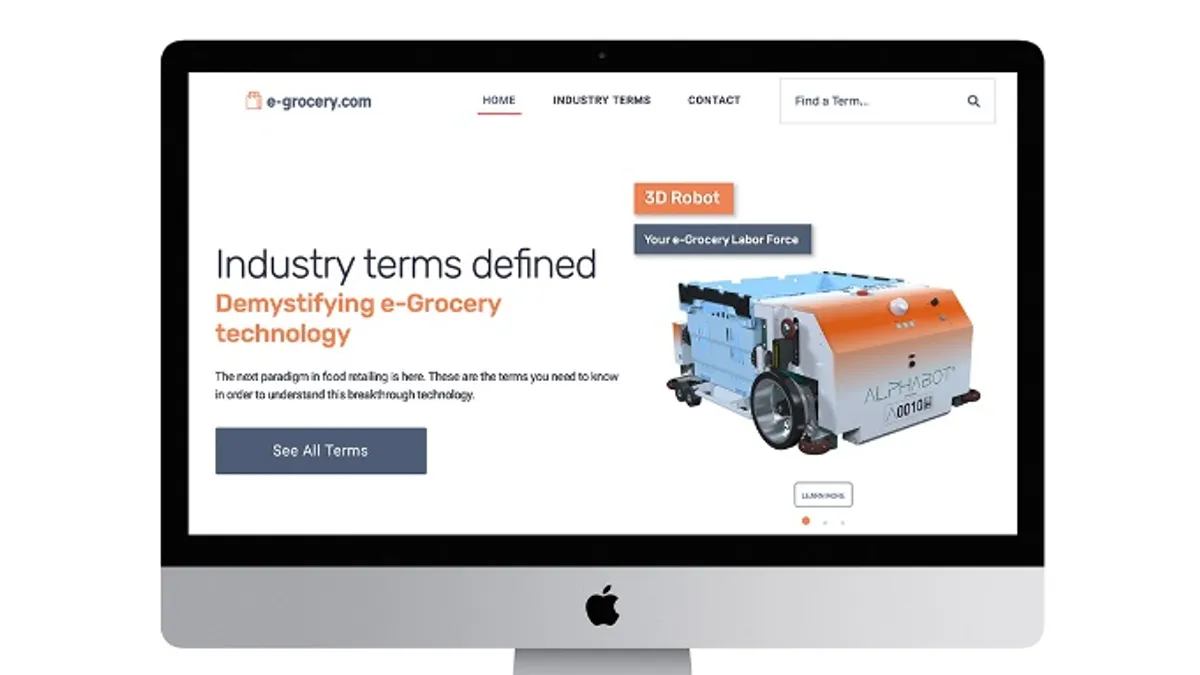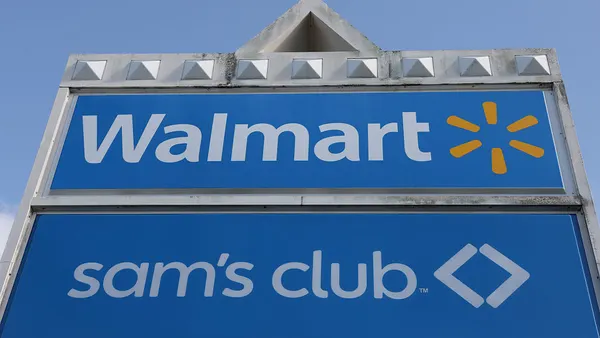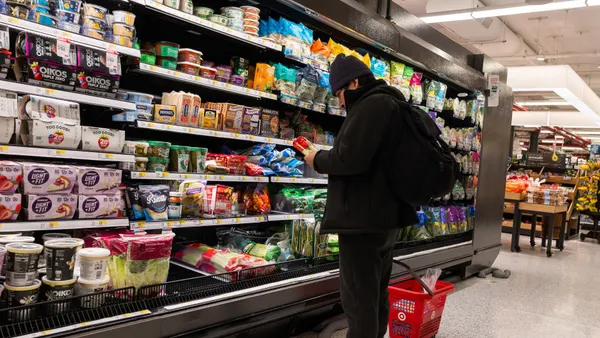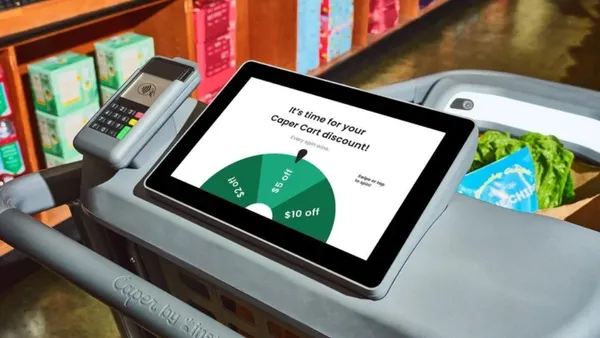Dive Brief:
- Micro-fulfillment center developer Alert Innovation has unveiled an online repository of terms related to automated grocery e-commerce technology, the company announced in a press release on Wednesday.
- The new website, e-grocery.com, provides definitions for a range of words, acronyms and phrases used in the grocery, retail and supply chain automation industry.
- Alert is releasing the tool as grocers examine ways to streamline their e-commerce fulfillment operations amid heightened consumer demand for online grocery services stemming from the pandemic.
Dive Insight:
The new website is a way for Alert to build awareness of technology it and a host of rivals hope will revolutionize the way retailers handle picking and packing operations — but that has been slow to gain traction on a broad scale.
In addition to verbal definitions, the compendium uses imagery, animations and videos to describe concepts and processes that are connected with automated grocery fulfillment systems, according to the press release.
Alert said in the release it plans to regularly update the site and will include terms submitted by users. The North Billerica, Massachusetts-based company, which markets warehouse automation technology based on self-guided carts and was the MFC pilot partner for Walmart, also plans to add industry white papers, best practice guides and other material to the online glossary in the future.
"Our goal for the e-grocery.com site is to broaden the understanding of grocery e-commerce and store automation for improved conversations that continue to propel the industry forward," Alert founder and CEO John Lert said in a statement.
While some grocery chains, such as Albertsons and Ahold Delhaize, are installing automated MFC systems in a handful of their facilities, food retailers continue to rely heavily on workers who walk store aisles to fill online orders. Automation experts note that while retailers are interested in ways to streamline their fulfillment processes, many have held off on adopting MFCs and other robotic solutions to assemble orders in part because of a lack of understanding of how the systems work and the potential benefits they offer.
"There's a lot of misinformation out there. And I think for the retailers, it's very difficult to navigate this minefield because they don't really know enough about the technology and the automation to be able to accurately say whether or not they should go one way or another," Marc Wulfraat, a supply chain expert and president of MWPVL International, said in a recent interview.
Grocers are pondering whether to embrace automation against a backdrop of continued interest by consumers in buying food and other items from supermarkets online. While grocery e-commerce sales declined 16% in May compared with the same month a year ago, to $7 billion, that level was still 3.5 times higher than the $2 billion in online grocery spending recorded in August 2019, according to a report from Brick Meets Click.














